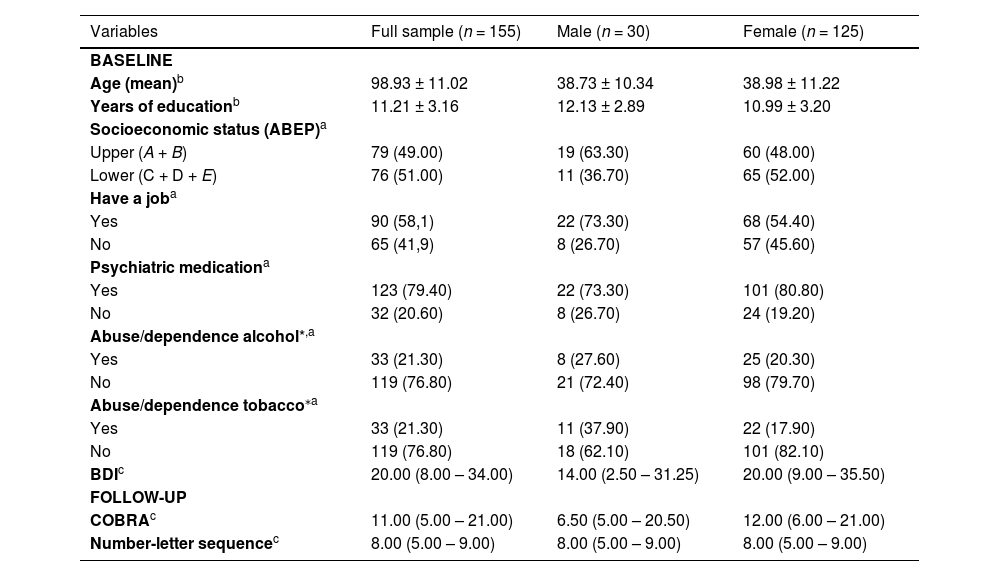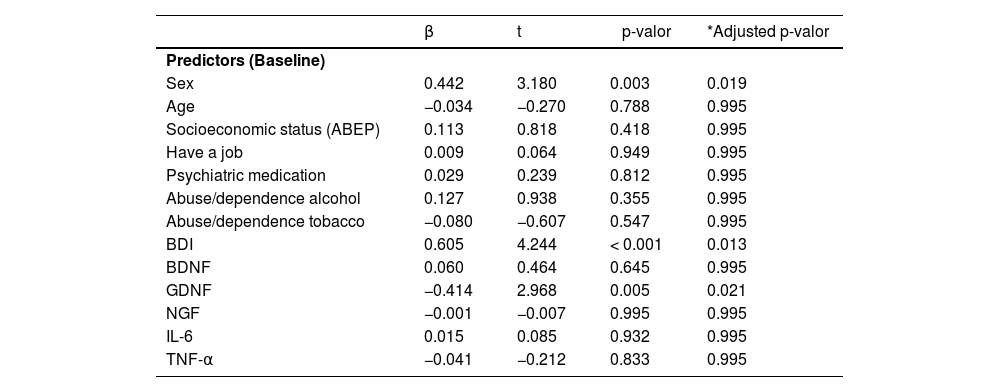Major Depressive Disorder (MDD) is characterized by cognitive dysfunction and neurotropic and inflammatory factors linked to its pathophysiology and cognitive impairment. This study aims to identify the prodromal serum biomarkers correlated to cognitive impairment in individuals diagnosed with MDD, including variation between sexes.
MethodsThis study is part of a larger two-stage research. The initial stage involved the sample of participants aged between 18 and 60 years old, diagnosed with MDD. The second phase took place three years later. The baseline assessments included a biomarker blood test (BDNF, GDNF, NGF, IL-6 and TNF-α). Follow-up assessments used the Cognitive Complaints in Bipolar Disorder Rating Assessment (COBRA) for subjective cognition and the number-letter sequence of the Wechsler Adult Intelligence Scale (WAIS-III) for objective cognition.
ResultsThe sample consisted of 155 subjects, 30 males and 125 females. In the sex-stratified sample, a correlation was found between COBRA and GDNF biomarkers in males (r= -0.339; p = 0.039). When COBRA was applied as a dependent variable in the multiple linear regression, the overall model was significant (Z (9, 50) = 2.611, p = 0.032; adjusted R2 = 0.620), with the highest impact on sex (β = 0.442, p = 0.003, padjFDR = 0.019), symptom severity (β = 0.605, p < 0.001, padjFDR = 0.013) and GDNF levels (β = -0.414, p = 0.005, padjFDR = 0.021).
ConclusionsOur results suggest that GDNF might be a prodromal biomarker for the early detection of subjective cognitive complaints only when targeting males with MDD.
Artículo
Comprando el artículo el PDF del mismo podrá ser descargado
Precio 19,34 €
Comprar ahora









